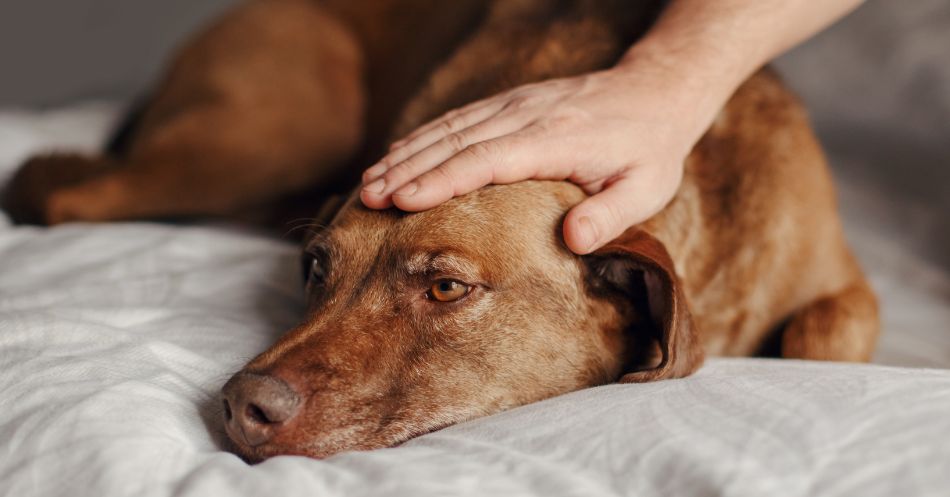
How to Comfort a Dog With Pancreatitis
Pancreatitis in dogs can be a life-threatening health issue if left untreated. Your veterinarian will provide the best treatment options to help your dog heal.
However, your best friend will need lots of TLC from you on their road to recovery. Here’s everything you need to know about comforting a dog with pancreatitis.
But first things first, what exactly is pancreatitis?
What Is Pancreatitis?
It’s much easier to help our pups when we understand their medical conditions and how their bodies work.
Your dog’s pancreas is a vital organ that produces enzymes that aid in digestion and blood sugar regulation. Sometimes, these digestive enzymes are secreted too soon in the digestive process or become activated within the pancreas itself.
As a result, the enzymes go to work digesting the pancreas itself! The pancreas becomes inflamed and those digestive enzymes can even spill into the abdominal cavity, affecting other organs like the gallbladder, intestines, and bile ducts, alongside causing systemic inflammation
With such mayhem going on inside their little bodies, it’s no wonder your dog is in pain and discomfort.
How To Help A Dog With Pancreatitis
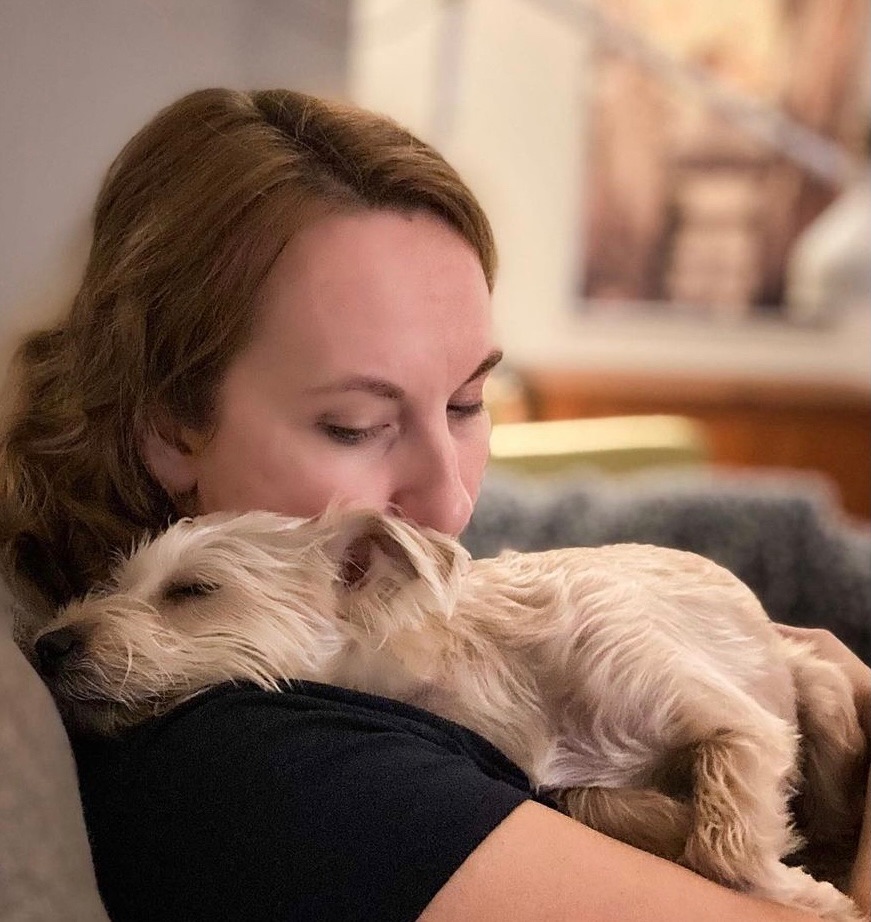
As we mentioned earlier, pancreatitis can be a dangerous health issue, so seek veterinary care immediately! That’s exactly what dog mom Pamela did for her yorkie-mix, Zuzu.
House guests fed Zuzu table scraps like fatty chicken skin and bacon — foods that were a bit too much for her digestive system. The next day, her parents came home to find seven piles of vomit scattered throughout the home!
Pamela recounts, “What was most concerning was that it was all bile and no actual food. And her demeanor was different. We could tell she didn’t feel good. She just wanted to sleep and cuddle and she wouldn’t eat anything. She drank very little.”

Vetster provides 24/7 Veterinary help via an app if you are unable to get an emergency appointment at a vet’s office right away.
Since it was the weekend, Zuzu’s primary veterinarian was closed. So Pamela sought immediate medical help by way of Vetster, an app that connects pet parents with on-demand Veterinarians 24/7.
“Within about 45 min of downloading the app, I had an appointment,” says Pamela.
Thanks to quick thinking on Pamela’s part and expert medical advice from a Veterinarian, Zuzu was able to begin recovering within about a day.
But poor Zuzu was truly miserable during her flare-up which required extra love and care to keep her calm and comfortable.
It’s important to note that in a situation like this, it’s best to take your pet into a veterinary hospital for an in-person physical exam with your regular vet, or if after hours, wiith an emergency veterinarian.
Often, pancreatitis cases require treatments or medications that may not be possiible via a telemedicine app. However, in Pamela and Zuzu’s case, the Vetster vet did encourage her to visit the vet if Zuzu’s condition didn’t improve by morning.
Here are some essential tips that helped Pamela comfort Zuzu and that can help you take care of your pup when they’re suffering from pancreatitis.
When it comes to comforting a dog with pancreatitis, it’s crucial to work closely with your veterinarian for proper treatment. However, there are a few steps you can take at home.
- Follow your vet’s instructions for at-home care.
- Provide a soothing environment by snuggling with your dog if they’re receptive
- Allow them time to rest.
- Avoid pressuring them to eat or drink, as their appetite may be affected while remembering nutrition is very important. Seek veterinary care right away if your dog refuses to eat in over 24 hours.
- Consult your vet for specific dietary guidelines. Low-fat prescription diets are recommended.
- Maintain a comfortable temperature in their surroundings.
- Promptly clean up any vomit to ensure a clean and calm environment.
Pin me!
8 Ways to Comfort a Dog With Pancreatitis
When it comes to comforting a dog with pancreatitis, it’s crucial to work closely with your veterinarian for proper treatment. However, there are a few steps you can take at home.
- Follow your vet’s instructions for at-home care.
- Provide a soothing environment by snuggling with your dog if they’re receptive.
- Allow them time to rest.
- Avoid pressuring them to eat or drink, as their appetite may be affected.
- Consult your vet for specific dietary guidelines.
- Maintain a comfortable temperature in their surroundings.
- Promptly clean up any vomit to ensure a clean and calm environment.
1. Don’t hesitate to take them to your vet.
We can’t stress this enough: pancreatitis is a serious and painful health condition. Things can turn dangerous very quickly. In this instance, home treatment is not the way to go.
In moderate to severe cases, dogs may need to be hospitalized to get better. Veterinary professionals are your first line of defense when it comes to your dog’s pancreatitis.
Pancreatitis is primarily treated by providing IV fluids, medication to control vomiting, pain management, and monitoring of the pet. Recently, a new medication from CEVA Animal Health has been approved by the FDA to treat pancreatitis in dogs.
It works by reducing the inflammation associated with pancreatitis. If your dog has a flare, be sure to ask your vet about Panoquell-CA1 (fuzapladib sodium).
2. Snuggle with your best fur friend (if they allow it).
Dogs are pack animals and they generally enjoy close contact. So if your pup will let you snuggle with them, then by all means, snuggle away!
If your dog is not snuggly by nature or is showing signs of discomfort when you hold them, let them have their space. If you think they are in pain, seek veterinary care.
3. Let them sleep.
Your dog will most likely seek out some downtime while they heal. Help them catch zzz’s by making their nap space as cozy and comforting as possible.
An orthopedic bed may be just what they need, especially if your pup also suffers from arthritis. Some luxury dog beds are hooded and lined with sherpa to create an extra cozy environment for your pup to rest and recuperate.
Check out the section “Helpful Products to Have on Hand” to see our recommended picks.
4. Give them peace, quiet, and isolation.
Isolate your dog away from other pets and small children so they can have peace and quiet. That’s what Pamela did as Zuzu healed from her pancreatitis.
She explains, “Zuzu had a playdate that same day, which we promptly canceled. Even when humans are sick, we’re not usually in the mood to be social. The same is true of dogs.”
5. Ask your vet for food recommendations.
Your dog’s pancreas needs time to rest and recover, so a gentle diet is key. Ask your vet to recommend safe foods for your dog to eat. Pamela’s veterinarian recommended a specific type of prescription food, but each dog and vet will be different.
In general, highly digestible, low-fat foods are best. For long-term support, your vet may even recommend a new dog food to prevent chronic pancreatitis.
6. Don’t force them to eat or drink.
Your pup may be in too much distress to eat or drink, so don’t force them to. However, be sure to closely monitor how much food or water they’re taking in and how often.
If your dog is vomiting or isn’t interested in his water bowl, try giving him a bowl of ice cubes. They can help keep him hydrated without upsetting his stomach.
Keeping good records of how many hours it’s been since their last meal can be very helpful as your vet evaluates them.
7. Clean up accidents.
Your poor dog is likely to have some accidents while they’re sick. An enzymatic cleaner will help you clean up after them.
Normal cleaners may work well to remove the mess. But dogs have such an acute sense of smell, that they need something much more effective that can erase all traces of their mess.
Here in the Pet Living family, we prefer non-toxic, bio-enzymatic cleaners to eliminate odors and accidents from our fur family.
Helpful Products to Have on Hand
FAQs
Yes! Thankfully, many dogs do recover from pancreatitis. Check with your veterinarian regarding treatment and which diet they recommend for your dog. A low-fat diet may help their pancreas to rest and heal and hopefully prevent recurring flare ups.
Depending on the severity of your pup’s pancreatitis, recovery can begin in as few as two to four days. For more serious cases that may include hospitalization, your dog may take one to two weeks to fully recover.
Pancreatitis can be triggered by a host of things such as fatty meals, obesity, diabetes, hypothyroidism, infections, and even blunt force trauma to the pancreas. That being said, a flare-up can also occur spontaneously.
The most common warning signs are fever, nausea, vomiting, lethargy, diarrhea, abdominal pain, and decreased appetite. You may also notice mood changes like depression.
During a flare up, your pup may even bow, with their rear end up in the air and their front legs and head lowered. This ‘downward dog’ position is indicative of abdominal pain.
The Tail End
Pancreatitis is a serious medical condition that requires professional help from your veterinarian. Once they’ve weighed in with a treatment plan, your dog is relying on you for comfort and support throughout their recovery.
Comfort your dog with lots of love, snuggles, and consistent care. They’ll be back to themselves in no time.
This article is not intended to diagnose or treat your pet. Always visit your veterinarian to obtain proper medical care for your pet.



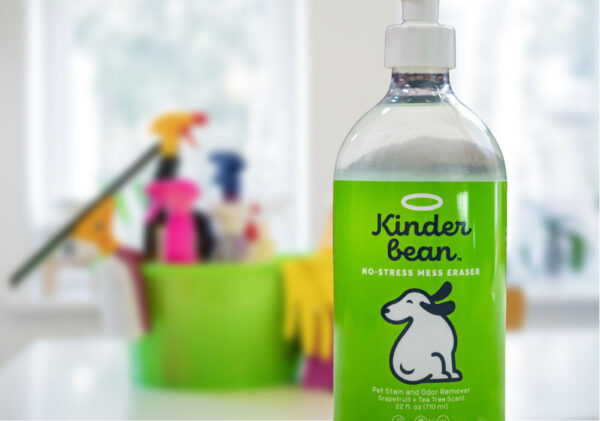




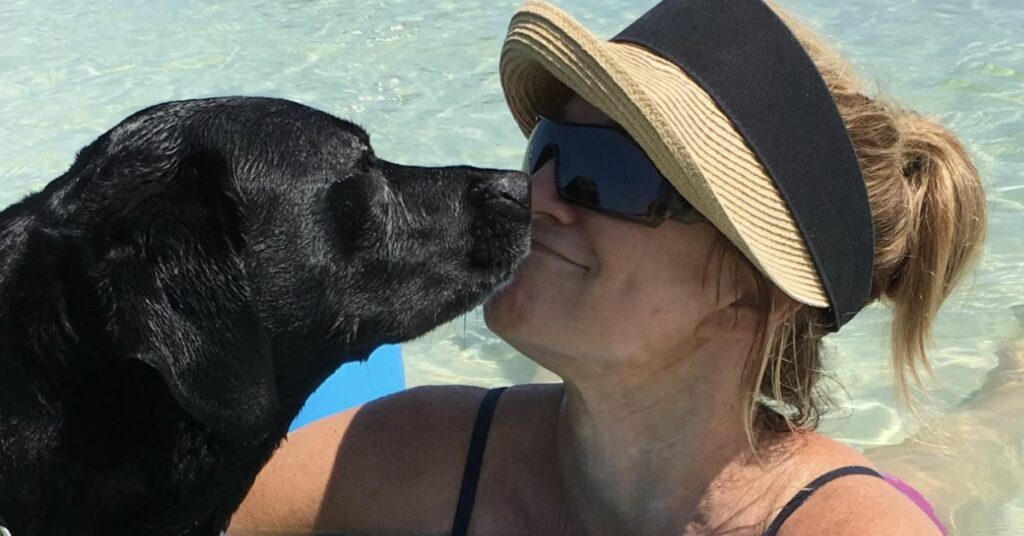
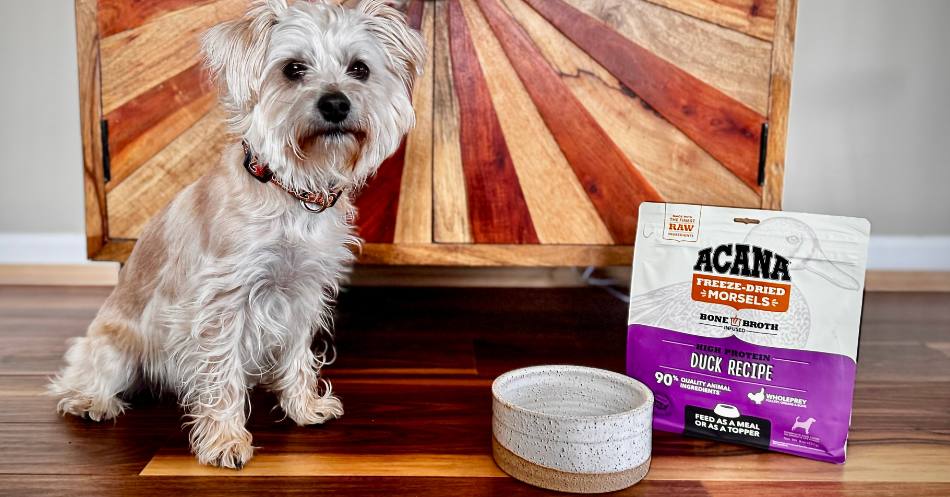
This Post Has 0 Comments